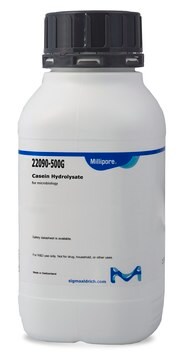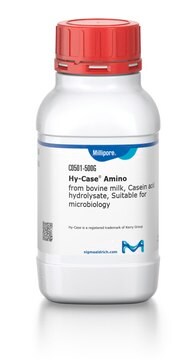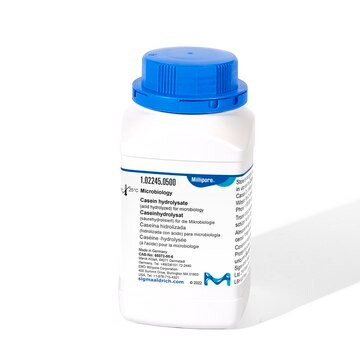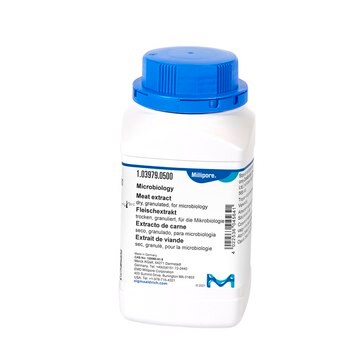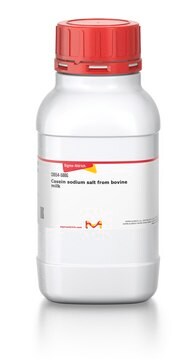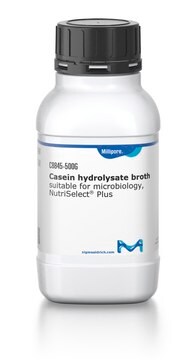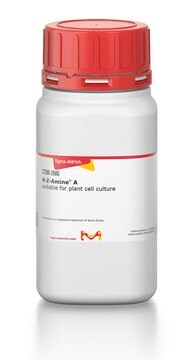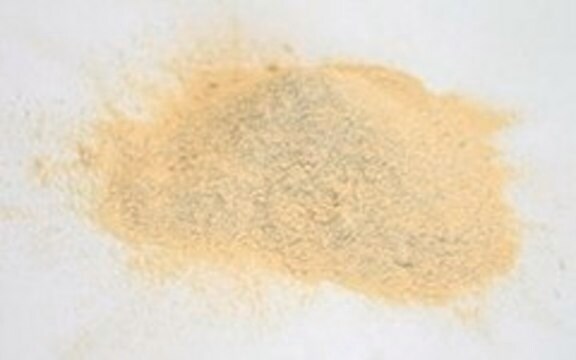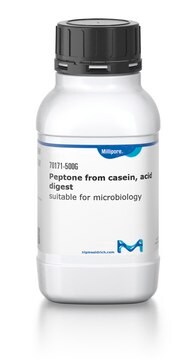Wichtige Dokumente
A2427
Casein Peptone
Acid digest of casein from bovine milk, ≥9% amino, suitable for biotechnology and microbiology
Synonym(e):
Amicase®, Case amino acids; casein acid hydrolysate
About This Item
Empfohlene Produkte
product name
Amicase®, Casein acid hydrolysate, from bovine milk
Biologische Quelle
bovine milk
Qualitätsniveau
Form
powder
Stickstoffbestimmung
≥9% amino, ≥12% total
Verlust
≤2% loss on drying
pH-Wert
5.6-7.6
Anwendung(en)
food and beverages
microbiology
Lagertemp.
15-25°C
Eignung
Bacillus spp.
Enterobacter spp.
Escherichia coli
Saccharomyces spp.
Staphylococcus spp.
Streptomyces spp.
coliforms
Allgemeine Beschreibung
Anwendung
Qualität
Rekonstituierung
Rechtliche Hinweise
Lagerklassenschlüssel
11 - Combustible Solids
WGK
WGK 1
Flammpunkt (°F)
Not applicable
Flammpunkt (°C)
Not applicable
Persönliche Schutzausrüstung
Eyeshields, Gloves, type N95 (US)
Hier finden Sie alle aktuellen Versionen:
Besitzen Sie dieses Produkt bereits?
In der Dokumentenbibliothek finden Sie die Dokumentation zu den Produkten, die Sie kürzlich erworben haben.
Kunden haben sich ebenfalls angesehen
Unser Team von Wissenschaftlern verfügt über Erfahrung in allen Forschungsbereichen einschließlich Life Science, Materialwissenschaften, chemischer Synthese, Chromatographie, Analytik und vielen mehr..
Setzen Sie sich mit dem technischen Dienst in Verbindung.